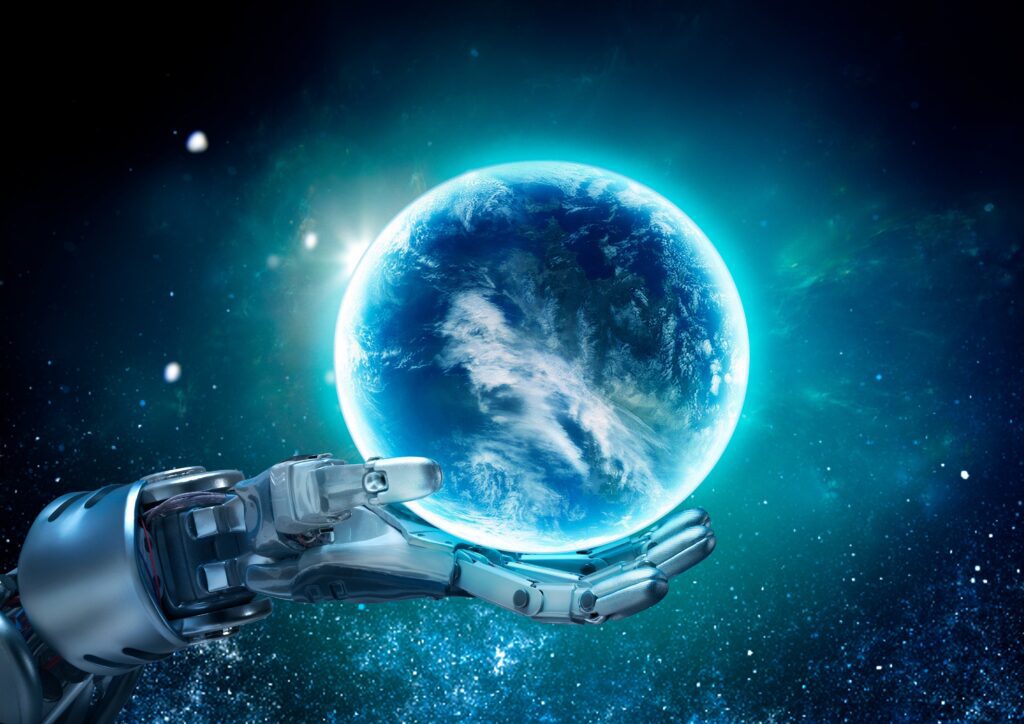Artificial Intelligence (AI) has evolved from a concept in sci-fi movies to an integral part of our lives, revolutionizing industries and shaping the world. In healthcare, AI improves diagnosis and treatment, while in transportation, it enables self-driving cars and optimizes logistics. In finance, AI automates tasks and enhances security, and in manufacturing, it streamlines operations and improves productivity. AI is also transforming education by personalizing learning and providing data-driven insights. However, challenges such as bias, privacy, and job displacement need to be addressed. As AI continues to advance, cautious and ethical development is essential for maximizing its benefits.
From Sci-Fi to Reality: How AI is Shaping the World We Live In
Introduction
Artificial Intelligence (AI) has come a long way from being just a concept portrayed in science fiction movies to becoming an integral part of our everyday lives. The rapid advancements in AI technology over the past few decades have revolutionized various industries and are reshaping the world we live in. In this article, we will explore how AI is transforming different sectors, the challenges it faces, and the potential it holds for the future.
AI in Healthcare
AI has made significant contributions to the healthcare industry, revolutionizing diagnosis, treatment, and patient care. Machine learning algorithms enable early detection and prediction of diseases, leading to improved patient outcomes. AI-powered virtual assistants help physicians streamline administrative tasks and provide personalized patient recommendations. These advancements not only save time and resources but also enhance the quality of healthcare services.
AI in Transportation
The transportation industry has undergone a massive transformation with the introduction of AI technology. Self-driving cars, an emblem of AI progress, are becoming a reality. AI algorithms analyze data from sensors, cameras, and GPS to navigate roads, reducing accidents and congestion. Additionally, AI improves logistics and route optimization, making transportation more efficient, cost-effective, and environmentally friendly.
AI in Finance
AI is revolutionizing the finance sector by automating tasks, enhancing security, and enabling smarter decision-making. Machine learning algorithms analyze vast amounts of financial data to detect fraud, mitigate risks, and make investment predictions. Automated chatbots provide personalized customer service, answering queries instantly. AI-powered trading algorithms execute transactions with high speed and accuracy, optimizing profits.
AI in Manufacturing
In manufacturing, AI is streamlining operations, reducing costs, and improving productivity. Robots equipped with AI technology perform repetitive and dangerous tasks with precision, improving worker safety and efficiency. AI systems monitor equipment conditions, predicting maintenance needs and minimizing downtime. With AI, factories can optimize production schedules and logistics, ensuring on-time delivery and minimizing waste.
AI in Education
The education sector is experiencing a transformation with the integration of AI technology. Intelligent tutoring systems personalize learning, providing tailored support to students based on their individual needs. Automated grading systems save educators time, allowing them to focus on meaningful engagement. AI also enables data-driven insights on student performance, helping institutions design effective strategies for improving education outcomes.
Challenges and Ethical Considerations
While AI brings numerous benefits, it also poses challenges and ethical concerns. Issues such as bias in AI algorithms, data privacy, and job displacement need to be addressed. Fairness and transparency in AI decision-making processes are crucial to ensure unbiased outcomes. Regulations and guidelines must be established to protect user rights and maintain accountability in the use of AI technology.
The Future of AI
The potential of AI remains boundless. Exciting advancements are on the horizon, such as further development of autonomous systems, natural language processing, and improved human-machine interactions. AI’s integration with other emerging technologies, like the Internet of Things (IoT) and Big Data, will unlock new possibilities in various domains. As AI continues to shape the world we live in, it is essential to approach its development and deployment with caution and foresight.
Conclusion
AI has transcended the realm of science fiction and become a critical force transforming our everyday lives. Its impact is evident across sectors, from healthcare to transportation, finance to education, and manufacturing to entertainment. With its immense potential and ongoing advancements, AI will continue to mold the world we live in, bringing forth both challenges and opportunities. As we navigate this AI-driven future, careful consideration of ethics and responsible development will be crucial for reaping the full benefits of this remarkable technological revolution.
